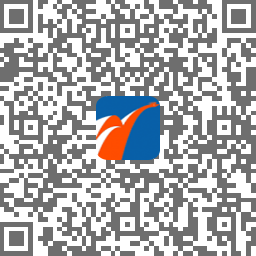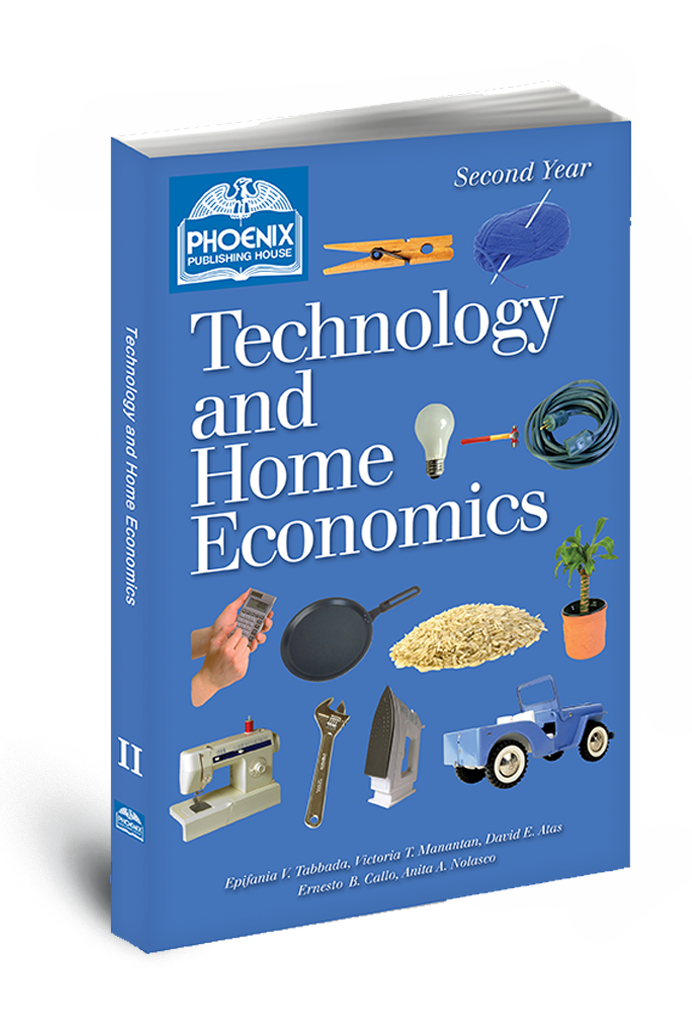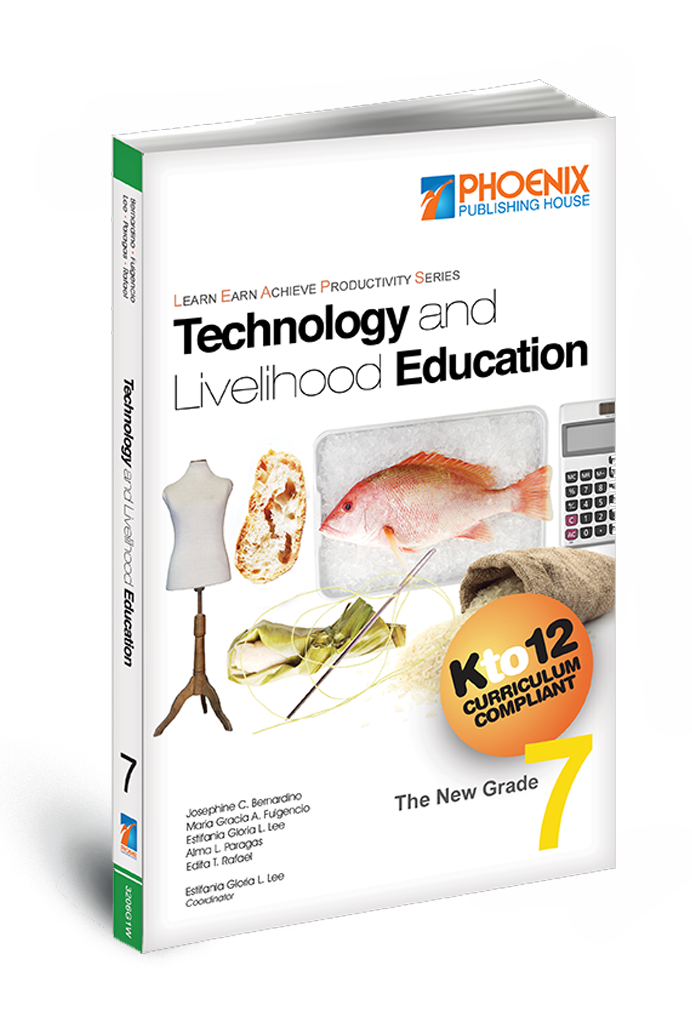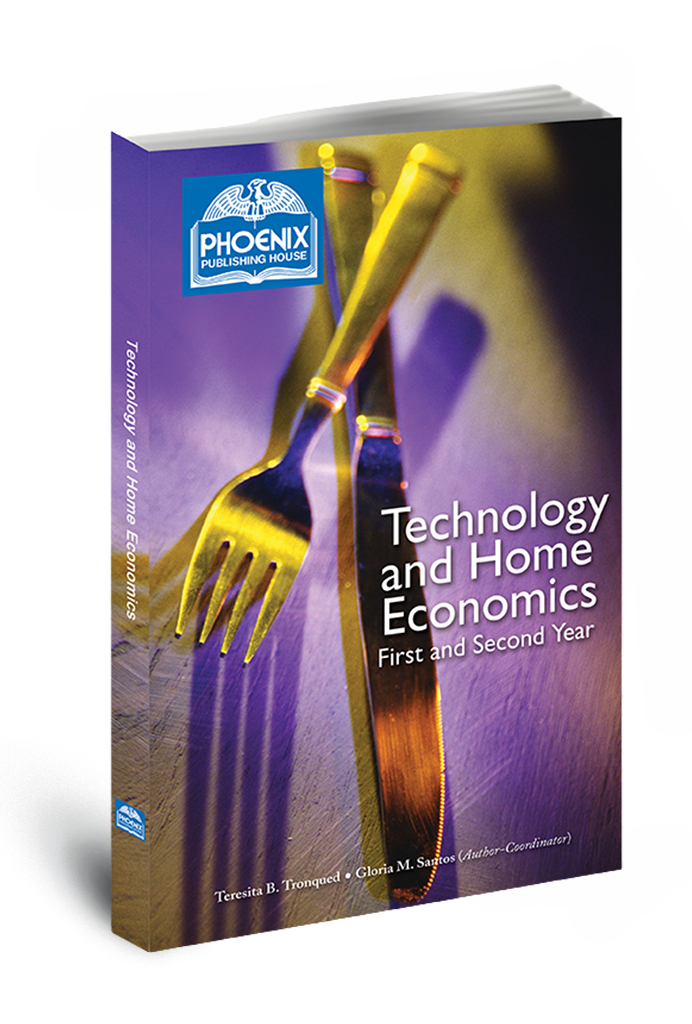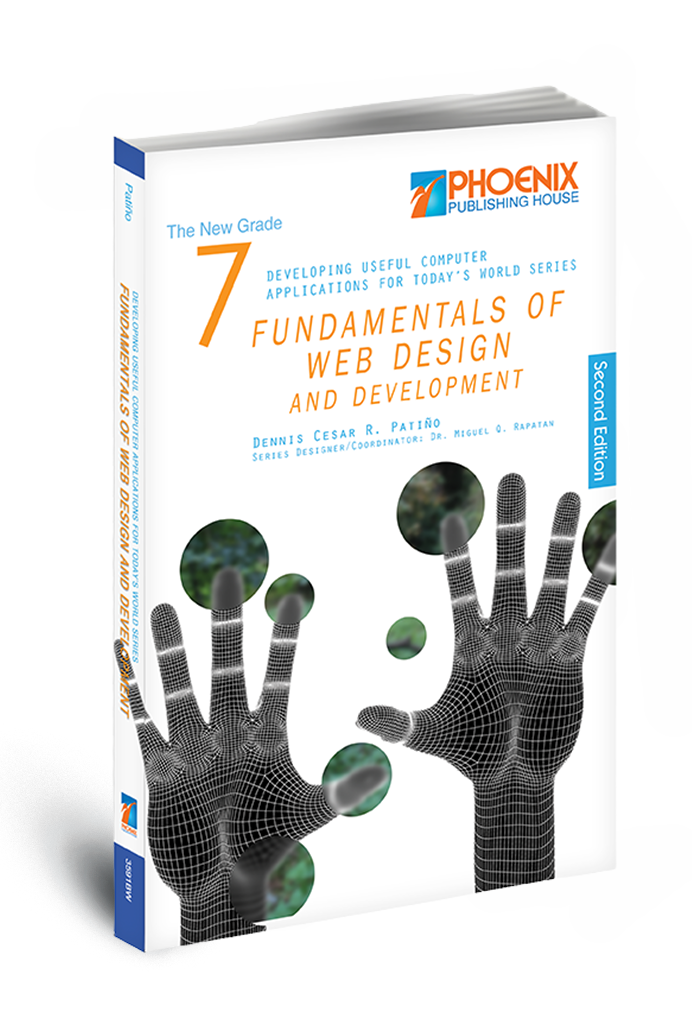
Developing Useful Computer Applications for Today’s World
Developing Useful Computer Applications for Today’s World series is an answer to Philippine education’s call to provide students with student-centered, authentic, and practical learning experiences.
Author/s
Grade 7, 8, and 9: Dennis Cesar R. Patiño
Grade 10: Raymund C. Sisonf
Series Designer/Coordinator
Dr. Miguel Q. Rapatan
Level/s
7, 8, 9, and 10
Textbook Copyright
Grade 7: 2014
Grade 8: 2015
Grade 9: 2014
Grade 10: 2015
With this series, students acquire in a direct hands-on way the basic and advanced skills that IT professionals in the industry themselves use in their daily work. Unlike other approaches where students merely become familiar with the nature and conventions of different programming languages, this textbook series focuses on having the students actually design and create specific applications that are widely used today. Thus, with this series, teachers empower the students to gain the IT skills that will make them become productive, responsible, and employable citizens of the country.
Batayang Aklat—Ipinakikita ang makabagong pamamaraan sa pagtuturo ng panitikan at wika sa hayskul. Nagtataglay ng mga pagsasanay, tanong, paraan ng paglinang sa mga talasalitaan na angkop sa makabagong pamamaraan ng pagtuturo.
Patnubay ng Guro—Naglalaman ang patnubay ng mahahalagang impormasyon upang mapahusay ang pagpapaliwanag sa mga leksiyon.
Buklet ng Malikhaing Komposisyon—Inihanda upang mataya ng mga guro at mag-aaral ang natamong kasanayan at kaalaman sa gamit at anyo ng wika sa pamamagitan ng paraang pasulat.
Student-centered Approach – Students undertake various activities that are very much attuned to their experiences and interests.
Inquiry – Students think about and share their ideas regarding a problem question and find out if their initial views are correct.
Discussion – Students are guided to understand the topic in a step-by-step manner with the help of flowcharts, screenshots of programming codes, and other illustrations. Screenshots show the expected output thereby making it reader-friendly for the students to follow the programming process.
Summary – Students review the key points presented in the chapter.
Evaluation – Students demonstrate their understanding of the lesson by answering exercises and reflecting on their learning and the importance of their work.
Real-world Applications – Students complete different projects and simulate and develop various small-scale applications that they can immediately use.
Rubrics – Students evaluate their projects with the help of rubrics which specify acceptable levels of performance and understanding.
Values Integration – Students relate the ethical dimensions of their particular tasks.
References – Students can look up other resources to enrich their learning.
Teachers Guides, Learning Guides, and Syllabi are readily available for teachers to use; they provide answer keys, additional exercises, and suggestions for doing the different lessons.
Other Books
Building Learner Resilience with MATATAG Curriculum – Compliant Solutions

